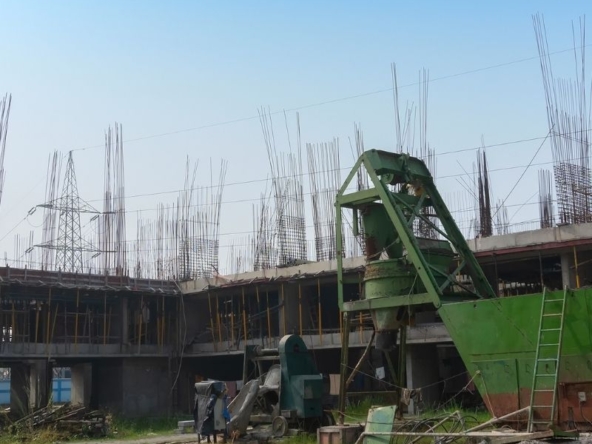Introduction:
The Union Cabinet on 2nd June 2021 has passed the Model Tenancy Act 2021. The law seems to contain provisions that are beneficial to both tenants and landowners. As per the Model Tenancy Act 2021, there will be rental courts and authorities in every district of every state. According to experts, the new MTA is a game-changer and may provide new possibilities to expand house leasing in India.
Center has approved the Model Tenancy Act on the 2nd of June 2021. As per the Minister of Housing and Urban Affairs Hardeep Singh Puri, there is a large availability of housing across the country. The Center has called out to States and Union Territories to enact new rules and regulations or revise the current laws of rental housing. The Act is applied for all the urban and rural, residential and commercial properties. However, the MTA does not make a difference for existing tenancies and they have to be in the continuity of the existing process.
The MTA has rules for both tenants and landlords. The landlord and tenant both have to make an agreement for the month-to-month tenancy, period for which the property will be on renting terms, and so on. The agreement then requires it to be submitted to the authority of renting in the district. The security deposit of the residential property will be 2 months and 6 months for commercial property and the center has not advised any maximum security deposit limit. According to the Minister of Housing and Union Affairs Hardeep Singh Puri, The states have the primary jurisdiction to set the rules for security deposit and rents, and the property owner and the tenant will come to an agreement on that.
As per the Model Tenancy Act, the tenants will not be evicted by the landlords before the expiration of the agreed period of property to be rented unless the tenant and landlord both agree on the decision and sign an agreement for the same. The tenancy needs to be renewed on the agreement and submitted to the authority of house renting in the district. If the tenant will not evict the property, the compensation will be double the monthly rent payment for 2 months and four times after that.
The landlord is responsible for the repair of the structure and the maintenance of the property unless the tenant assumes the responsibility by stating it in the contract. The washing of the walls, painting, plumbing, replacement of pipes, and internal and external electrical wiring are the responsibilities of the landlord. The landlord will be allowed to carry out the process of repairing and maintaining only if he gives a prior notice 24 hours before the work. Tenants are also responsible for some maintenance. The cleaning of drains, the repair of sockets, repairs of kitchen fittings, the replacement of glass panels and the maintenance of open spaces, and so on, will be taken over by the tenant. Tenants will also be responsible for any other intentional damage to the property. As per the rules in the MTA, an application will be taken to the rental court if the landlord or the tenants has any dispute regarding the repair or maintenance of the property. However, no property manager can refuse to deliver the necessities to the tenants.
According to the MTA, the rent can be revised according to the conditions stipulated in the rental agreement. In case if the landlord does not mention the revision of rent in the rental agreement, the landowner will give notice to the tenant about the revision of rent 3 months prior. If the tenant does not give a notice of termination then the tenant will have to accept the revised rent. Besides these rules, any dispute from either party can be taken to the rental court in the district.
The MTA has made it easy for the tenants and the landlords to process things faster and have fluency throughout the process. In case of any dispute between the landlord and the tenant, the district rental court will be making decisions of rent payment and security deposit of the property. The district rental courts will be operating for both rural and urban properties and commercial and residential properties.
The centre has passed the circulation to adapt the laws for the Model Tenancy Act. Which juridical will provide rights and benefits for both tenants and landlords. If the tenant will have an issue regarding an unnecessary increase in the monthly rent of the agreement, the tenant can raise a dispute to the rental court.
Unlocking vacant unutilized buildings and commercial properties for renting is a progressive idea. More vacant houses will be available after the implementation of the Model Tenancy Act. The Minister of Housing and Union Affairs, Hardeep Singh Puri has said, there are available vacant properties for rental housing. The availability of more property can have an immense effect on how India sees renting a house. Increased availability of the premises will eventually result in decreased security deposits and monthly rent. More vacant properties are being built and the availability of buildings is what most of the landlords want. Buying complexes and apartments for landlords’ means, utilizing the property by either living in the premises or giving it on rent. The Model Tenancy Act will surely make a difference for landlords. It will also have an impact on tenants searching for a property that is affordable. The Model Tenancy Act will establish a comprehensive market with more opportunities for everyone.
Lockdown in the country has surely affected the economy and the Housing market with amended rules and inflation. People who have rented properties are either paying more or earning less. Hence, are worried about their monthly rent and other expenses. The People living in rent-controlled properties were concerned about the spike in monthly rents. However, Mr Puri has said, the Model Tenancy Act is a Model. It will not have any effect on the existing house rental system. Also, The New Door is the best real estate agency that helps clients with the best apartments at the best locations at the best price for rental and purchase.




